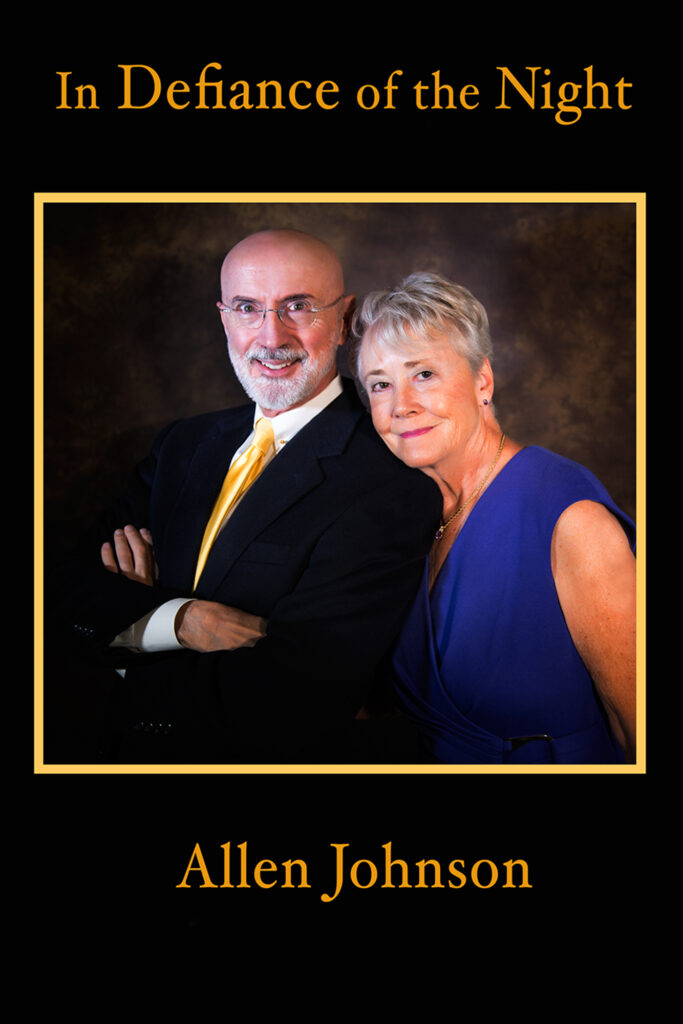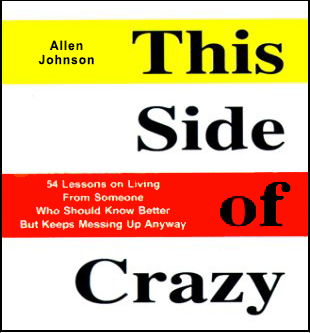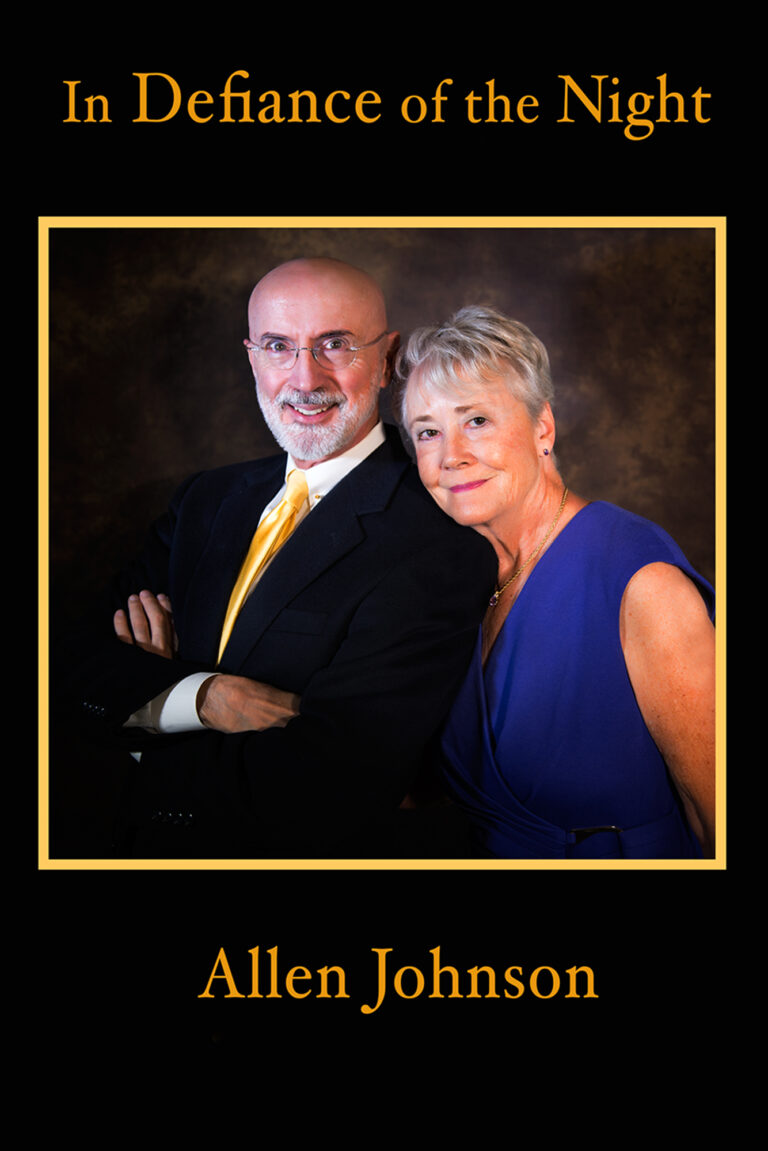I endured the end of days. Although Nita was still breathing, she was no longer present. Her gaze was lost somewhere between her eyes and mine—a region I called “elsewhere.” I didn’t know where elsewhere existed, nor did I think Nita knew. I believed she lived in dreamland, flitting about from one memory to another—never knowing where she was or why she was there.
Despite this long pause in the tenebrous maze of dementia, she was not agitated. But I was. It was a sad reckoning she and I endured. When I said, “I love you,” she sometimes looked at me with a wry smile as if to say, how can you love me the way I am? Maybe she recognized how I felt out of sorts. I didn’t know how to answer her unspoken question. I barely bore the cruel ghost of Nita. What I did love were the sweet memories of her—remembrances that would never fade.
***
In the summer of 1972, Nita and I hitched a ride with our French friends Jacques and Maryvone Potron. Over the next several days, we descended the mountains of Northern Algeria, passed through Morocco, ferried across the Strait of Gibraltar, traveled along the Spanish Mediterranean, and turned north for the running of the bulls at Pamplona in northeastern Spain. Our final stop with the Potrons was at their apartment in Tours, France, located in the Loire Valley southwest of Paris.
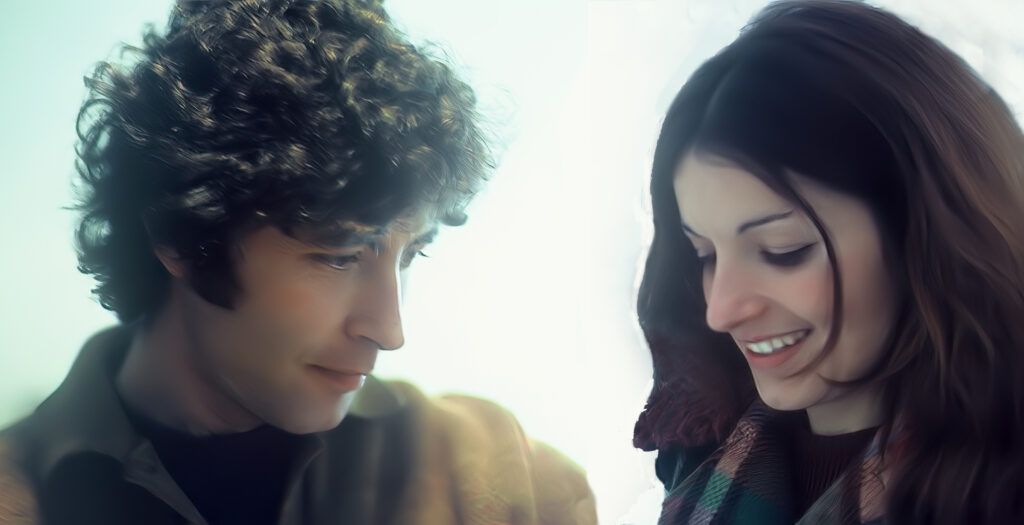
Although we had little money, we had heard Amsterdam boasted a market where vintage cars were sold for a few hundred dollars. That was our destination. Our mode of transportation was hitchhiking. Because we were in our mid-twenties and Amsterdam was only 460 miles north of Tours, the excursion didn’t seem unreasonable. It would be an adventure.
Nita never quibbled. “Of course, we can do it,” she said. “What’s to stop us?”
I shook my head. “Only our nerves,” I offered.
Nita shrugged. “I’m up for it if you are.”
Although I suspect hitchhiking in Europe in 1972 was easier than it is today, we had a few dicey moments. In mid-route, we couldn’t get a car to stop for us. Dark clouds were rolling in, and I thought we would soon be drenched.
I recalled the famous scene from the Frank Capra 1934 classic, It Happened One Night. Clark Gable and Claudette Colbert were in the same predicament. Regardless of Gable’s charm, he was not able to stop a car. That’s when Colbert took charge. She stepped to the side of the road, showed a little leg, and the Model T came to a quick stop.
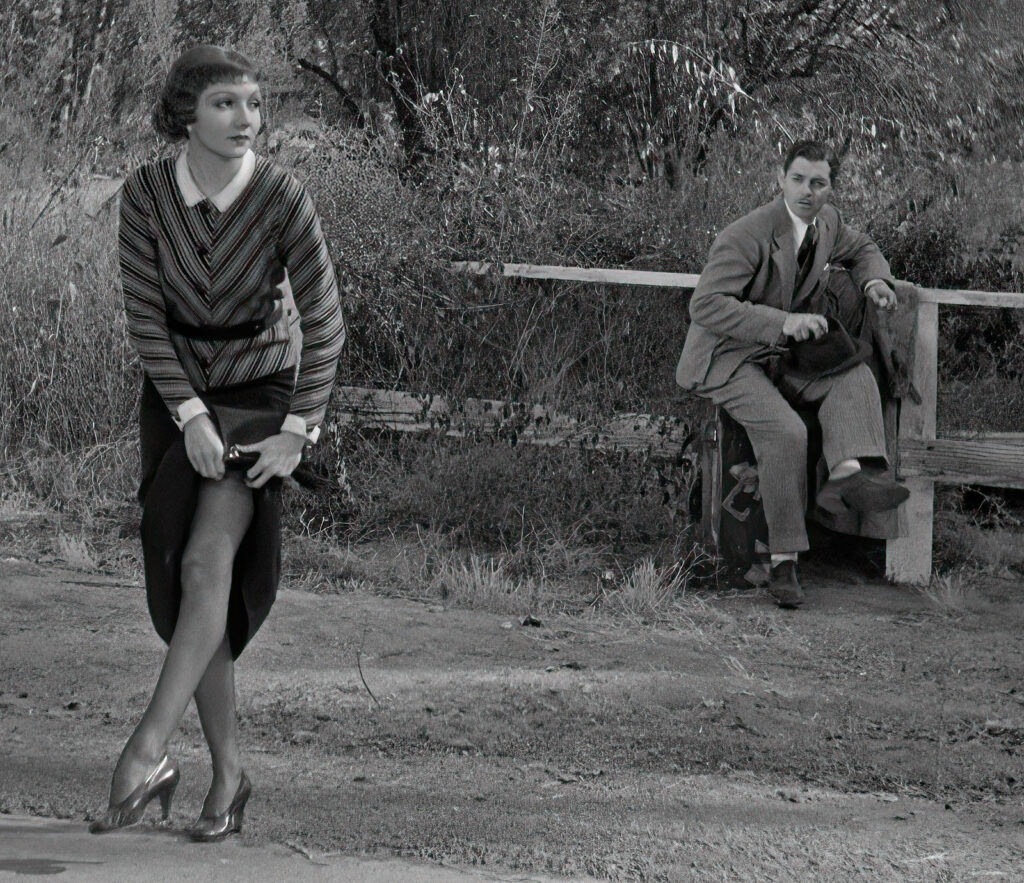
When I suggested we try the same routine, Nita never hesitated—nor did she have to show any leg. “Hide in the bushes,” she said to me as she stepped to the side of the road, put her weight over one foot, and let her other leg jut out to the side.
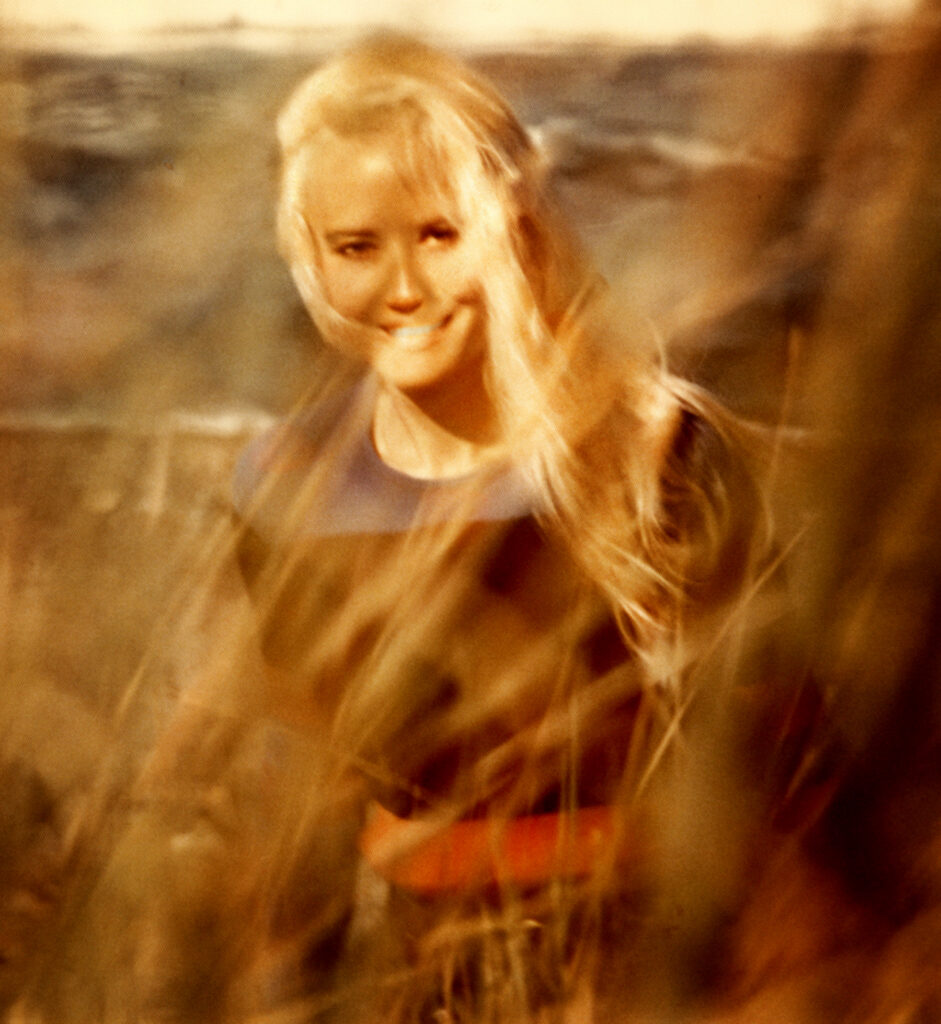
With her long blond hair flowing in the wind, she gave her thumb a discreet waggle and stopped the first car that came along.
When I leaped from my lair, I was afraid the driver would peal out, leaving us in the dust.
“Ah, there’re two of you,” the driver said in English with a hint of a Dutch accent. “Like Gable and Colbert.”
“More like Abbott and Costello,” I said sheepishly.
“And your American,” the driver’s female companion said.
“Is it that obvious?” I asked as I appraised the couple, both in their twenties.
“Your baseball caps and blue jeans are a dead giveaway,” the woman said with a smile. “My name is Maria. And this is my husband, Anton.”
“I’m Allen,” I said, “ but my wife, Nita,”—I pointed at her with my head—”sometimes calls me ‘stud muffin.’”
“Stud muffin?” Anton asked. “What does that mean?”
“I’m not sure,” I said, “and I’m afraid to ask.”
“Why are you afraid?” Maria asked with a chuckle.
“When it comes to women, I don’t like to press my luck. Whatever a ‘stud muffin’ is, I accept it with bated breath and whispering humbleness.”
One half of Anton’s lips curled into a smile. “Where are you going?”
“To Amsterdam, to buy a car,” I said.
“You’re in luck,” Anton said. “We live in Amsterdam.”
“Your English is perfect,” Nita said. “How is that possible?”
“We watch a lot of American movies. Including It Happened One Night. Almost all Dutch young people speak English. It’s a must for business.”
“I’m impressed,” I said.
The rain showered the windshield, then came down in torrents.
“I hope you didn’t mind our deception in getting you to stop,” I said.
Anton laughed. “I would have done the same thing—especially in this weather.”
We stayed overnight at Anton and Maria’s apartment. As soon as I stepped into the living room, I knew we had something in common beyond our youthful age. In one corner was a complete recording studio with an electric keyboard, rhythm machine, and microphone.
“You’re a musician,” I said.
“Not so much,” Anton said. “How do you say? I tinker.” He cocked his head. “Do you play?” he asked.
I’ve always loved music. I remember sitting in the front row each week the music specialist visited our elementary school. I opened my mouth and sang as if I were the star of a Broadway musical. When I was eight, my favorite song at the time was the “Marines’ Hymn.” I sang like a true soldier: “From the halls of Montezuma to the shores of Tripoli.” Though I had no understanding of the geography, I knew it was important.
“Yes, I play,” I said without hesitation. “Would you like to hear a tune?”
“Of course,” Anton and Maria said all at once.
I sat at the piano and selected a beat on the rhythm machine. “Ladies and gentlemen,” I announced, “please welcome direct from the Las Vegas International . . . House of Pancakes, the ordinary, garden-variety stud muffin, Allen Johnson.” Then, in imitation of a frenzied crowd, I half whispered a hurrah. “Yeah.”
On that tomfoolery, I played and sang my favorite 1929 Fats Waller swing tune, “Ain’t Misbehavin’.”
When I had finished, I asked Anton to play a number.
“Not on your life,” he said. “I’m not following your act.”
“We all have our gifts,” I said. “I know one of yours is hospitality. Thank you so much for taking us in.”
I remember.
***
The next morning, after a hardy breakfast including eggs, sausages, and the darkest, most wholesome bread I had ever eaten, Anton drove us to the car market.
I gave Anton an American hug. “Thank you so much for your kindness. You’re the best.”
“The pleasure was ours,” Anton said. “It’s always a delight to meet new people. But when they’re rock stars, it’s even better.”
After watching Anton pull away, Nita and I turned to each other.
“We can never forget them,” Nita said.
“No, we can’t,” I said. And we never have.
Strolling among all the vintage cars, we were immediately drawn to a red Volkswagen bug. I was peeking through a door window, when I was startled by a voice with an American accent.
“Hi, my name is Chet.”
I straightened my back, turned, and shook hands with a man in his thirties. He was taller than I by at least four inches and broader in the shoulders. His hand wrapped around mine as if I were a toddler.
“Hi, Chet. Nice to meet you. I’m Allen. I take it this is your car?”
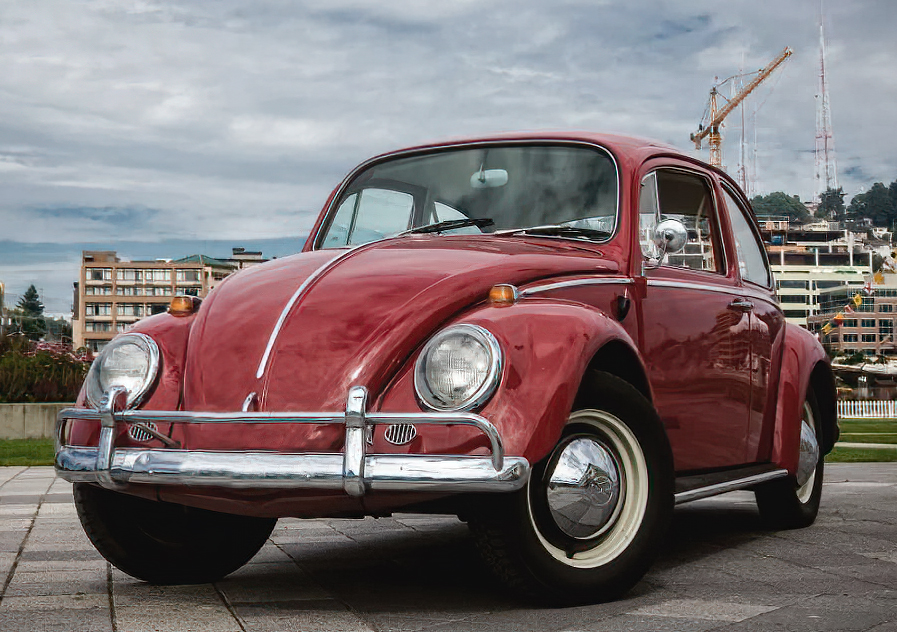
“Yep,” he said with a lilt that sounded Texan. “What d’you think?”
I quickly examined the interior and exterior. The seats were in good shape and the exterior was flawless. “This would be perfect for us.”
“If it’s not too expensive,” Nita added.
Chet examined Nita as if he were pricing her value. “How does $400 sound?”
I looked at Nita who nodded. “That works for us.”
“I’ll tell you what,” Chet said. “Let’s drive to my boathouse on the Amstel River.”
Nita opened the passenger-side door. “Why not?”
When we reached his boathouse, I looked across the river at a row of red-brick five-story apartments. They glowed in the sunlight.
“This is a beautiful spot,” I said. “You’re lucky to live here.”
“I like it,” Chet said modestly as he leaned against the bug and folded his arms across his trim belly. “I don’t want to sell you the car the way it is. I’ve been noticing some hesitation recently. I’d like to replace the carburetor and vacuum distributor.”
That was when I shuffled the pebbles under my sneakers. I didn’t have a clue what he was talking about. “Uh-huh,” I said profoundly.
“Believe me, the car will run a lot smoother,” Chet said.
“I just don’t know if we can afford any upgrades,” I said.
“I won’t charge you a penny more,” Chet said. “I’d just feel better knowing you’re traveling safely.”
I was still shuffling pebbles when Nita asked, “Why would you do that for us?”
Chet brushed the five-day stubble along his jawline with the back of his hand. “Because I like you,” he said with a comely smile.
That’s what people said to us again and again, but only when Nita was present. With her beauty and sophisticated charm, she could turn a pit bull into a lapdog in less time than it takes to say, “Sit.”
I remember.
***
With our red Volkswagen beetle in good running order, we headed south. In a few days, we found ourselves in southern Germany seventy miles north of Munich in the Altmuhl Valley near the town of Riedenburg. The summer night was warm. We were accompanied by a full moon that reflected dreamlike on the Danube River. The setting could not be more romantic.
In the early days, I never thought Nita was particularly daring. For me, her idea of madcap was wearing pink and orange in the same outfit. Because I didn’t know then what I know now—that Nita can be surprising—I was staggered by what happened next.
We sat on a park bench so close to the Danube we could hear the water lightly lapping on the river’s bank. We were enveloped by a stand of oaks. If there was anyone within a mile, we neither heard nor saw them.
I wrapped my arm around her and tucked her into my body. She lay quietly, her head on my shoulder, as we watched the lunar reflections dance across the river. After a moment, I tilted her face upward with the touch of my finger under her chin. I kissed her softly on the lips which she returned with burning intentions.
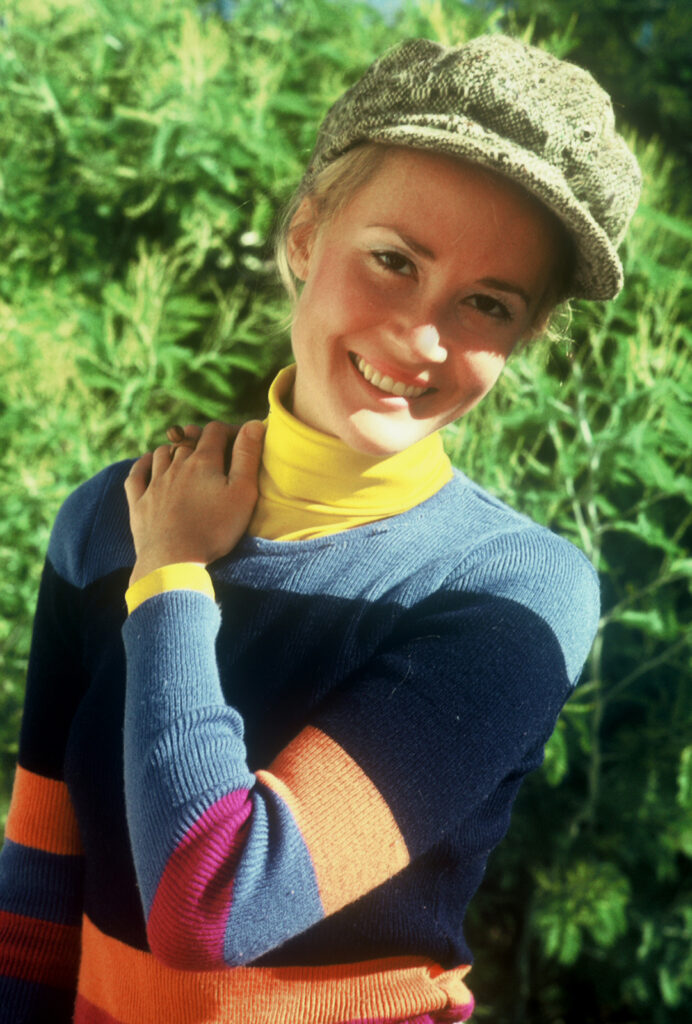
Under a swell of passion and without the cover of walls or at least a tent, we made love under the soft light of moonglow—the only time in our marriage we would be so brazen. The moment was so perfectly surreal my body trembled as my head took flight into never-never land.
I have always known I loved Nita from the first flash of her perky figure, but at that moment, I felt as though our love had spiraled out from our cores, intertwined, and raced to the moon.
There is a difference between sex and love. Sex is physical—resulting in muscles contracting, heart racing, and breathing accelerating. Love is cerebral—a conscious decision to surrender yourself to another.
But on that night on the bank of the Danube under the grand old oak trees, both sex and love aroused each other until I could no longer distinguish one from the other. All at once, the act of lovemaking was willfully and beautifully primal.
Although the night was unusual, Nita’s volition was real. Her passion (my ego would not allow me to say “good acting”), was so genuine she made me feel like the headliner in a male strip club—sexy as hell with my cop uniform ripped off in a single stroke.
I remember.
***
Those reflections were as vivid to me as the instant they shifted from reality to memory. Even while Nita lay suspended in limbo, I found myself revisiting my remembrances as a way of easing the pain. My sweet Nita was no longer conscious. She was literally and metaphorically asleep. I did not know what stories danced in her head. I only hoped they were pleasant. Maybe she remembered our hitchhiking adventure to Amsterdam or our amorous night in the moonlight. I’d like to think so.
Whatever her thoughts—if any—she was absent, unable to laugh or dream or celebrate. I already mourned her passing. For that reason, I would not be crushed when she passed on. I had already become familiar with dread.
I would certainly be reminded of our fifty-four years together: teasing, flirting, musing, planning, and acting on our plans. But I would not succumb to the villainy of grief. Nita would not want that; nor would I.
Life was a gift—as limited and painful as it might be. We must be greedy about our existence—grasping at every moment of health and lucidity.
Don’t ask me to brood. I will not slander time. Although Nita’s love will always beat in my chest, when the time comes, I will move on. I will seek new adventures, new friendships, and the fulfillment of new dreams. Anything short of that would be a desecration of Nita’s spirit.
I just don’t think I’ll be hitchhiking. Without Nita to lure a chauffeur, I’m sure I’d be caught in the storm.
***
These reflections are for Nita: the irrepressible, unforgettable love of my life.
I remember.

